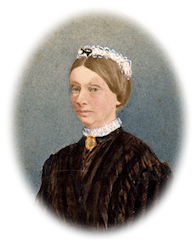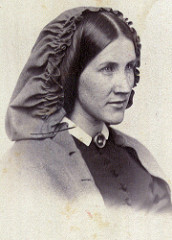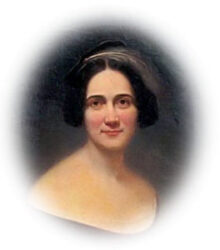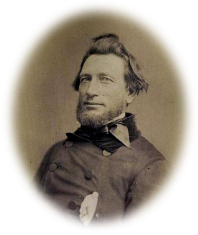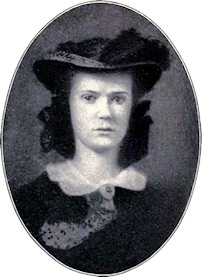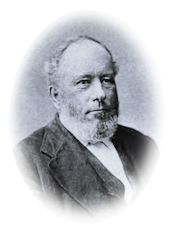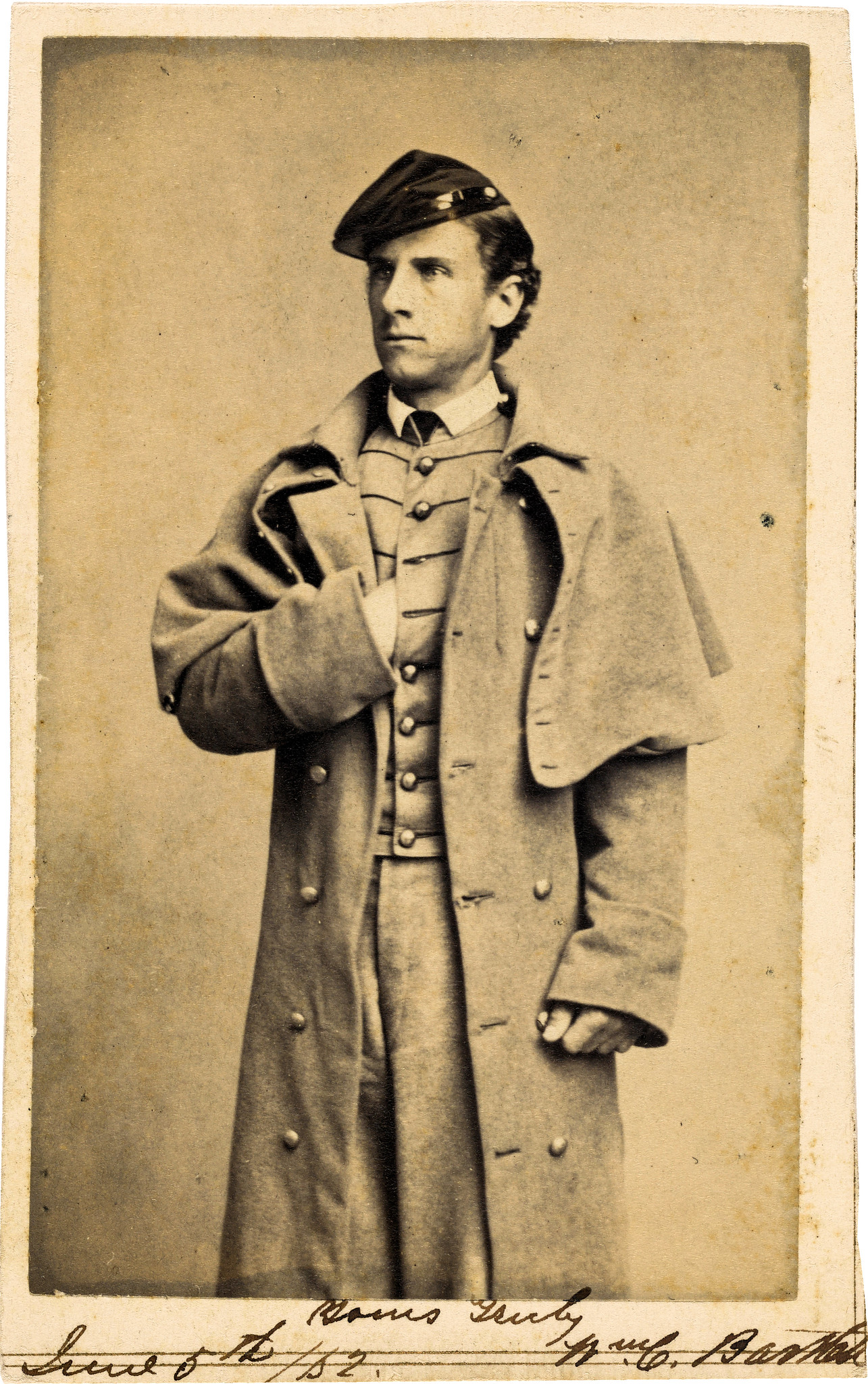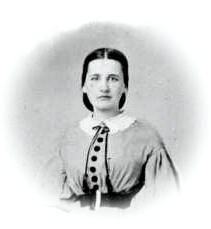 Abby Howland Woolsey to Georgy and Eliza.
Abby Howland Woolsey to Georgy and Eliza.
8 Brevoort Place, Saturday.
My Dear Girls: How little we know where you are and what worlds of work you are doing. It is hard to keep still, I know, where so much ought to be done. . . Yesterday Charley and the Webster were to sail and we had a carriage and all went down with the traps–box of brandy, trunk of towels, etc., bundle of air-beds, bundle of fans, and a basket with a few eatables–some fresh eggs which had just arrived from Fishkill, and three or four bottles of ale, which I hope Eliza will drink; she sometimes used to take a glass of it at home. As for Georgy, I do not expect to have her take anything of that sort, after what mother tells me of the fate of the boxes of claret you took to Washington. One box was still unopened, and, so far as she knew, Georgy had never touched a drop. . . . We found Mrs. Trotter on board. The other ladies soon came –Mrs. Griffin, Miss Katharine P. Wormeley, Mrs. Blatchford and Mrs. H. J. Raymond. . . .
The vessel is a fifth-rate bed-buggy concern, I should say, and the hold where the men were put seemed miserable in spite of your pains, but for which it would have been very forlorn. Charley was so busy running hither and thither that we hadn’t much chance at him. I was sorry we had not packed a great hamper of cooked food for him and Mrs. Trotter. Another time we will do better. They expect to be back by Wednesday with as many sick as they can carry, and judging from the number they brought packed on the Ocean Queen, they will stow them with deadly closeness. We saw Dr. Grymes and liked his looks and manner. He startled us by telling us that the Ocean Queen was coming up the bay with over a thousand sick, four hundred typhoid cases. Couldn’t do without you, he said; “only ladies down there to come –of course they are on board.” Mrs. Griffin, too, was convinced of it and sent back by us a big bundle of tins she had bought for Georgy. We left the Webster at four, when they were to sail at any moment, and drove down to the pier where they said the Ocean Queen was to lie. She was not due till six, so we came home. What with the news from West Point, Va., without details, and with the idea that you were the only women on the Ocean Queen to see after the nurses and the sick, and Charley’s departure, we were sufficiently sobered and excited, a compound of both. This morning Uncle Edward reports us the Herald’s news from West Point, that it was only a skirmish and that the loss of the 16th was two killed, beside wounded. . . . At ten o’clock Dr. Buck landed on the Ocean Queen, came up to his house and sent us word that you were not on board. This morning he has been in for a moment, and says you were indefatigable and indispensable at the front; far more useful in staying than in coming up, that he didn’t know where you went when you left the Ocean Queen, but that you were “all right” with Mr. Olmsted somewhere, and taken care of. . . . Eleven hundred, Dr. Buck said, came on the Ocean Queen. So many of them are virulent fever cases, men who must die, that there is great perplexity what to do with them. The City Hospital, North building, is fast filling up, and the air is so infectious that Mrs. Buck thinks it unsafe to enter it. The Commissioners propose that these new cases should go to Ward’s Island. The government barracks on Bedloe’s and Riker’s Islands won’t be ready for some days, and I dread having the Daniel Webster or some other transport bring a thousand more before these have been decently housed. . . . Mother has driven out to Astoria with Uncle E. Carry has gone to Park Barracks with flowers and cologne sent from Astoria, and Jane is at the City Hospital with oranges for fever men. She goes into the fever ward, considering it duty, and undertakes too much for her nerves, but you needn’t tell her so. Carry and I are going this afternoon to see a “Mr. Woolsey,” who was sent to St. Luke’s, sick of fever.

